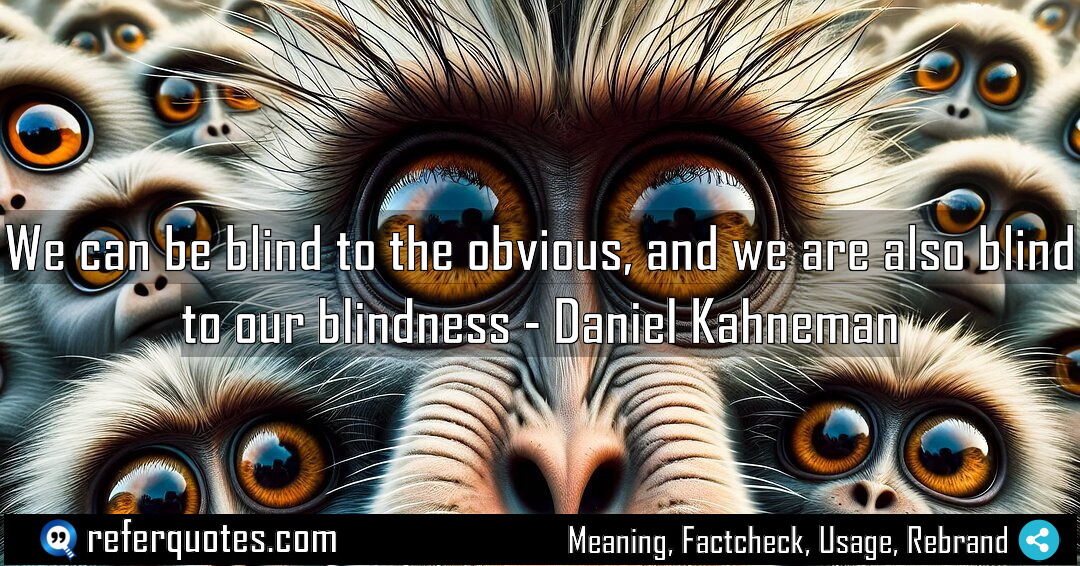We can be blind to the obvious… and that’s the scary part. This quote from Daniel Kahneman perfectly captures the double whammy of our own minds. We miss what’s right in front of us, and we don’t even know we’re missing it. It’s a humbling truth about human cognition.
Share Image Quote:Table of Contents
Meaning
It means we often fail to see clear, evident truths, and on top of that, we’re completely unaware of our own ignorance. It’s a two-layer cognitive failure.
Explanation
Let me break this down for you based on years of working with these principles. Your brain has two systems. System 1 is fast, intuitive, and runs on autopilot—it’s what makes you jump to a conclusion. That’s where the first blindness happens; it serves up an answer that *feels* right, so you stop looking. The real kicker is the second part. Because the answer felt so intuitive and obvious in the moment, your brain confidently labels the case as “closed.” You never get the memo that you might be wrong. You’re blind to your own blindness. It’s the root of so much misplaced confidence.
Quote Summary
| Context | Attributes |
|---|---|
| Original Language | English (3668) |
| Category | Personal Development (697) |
| Topics | awareness (126), bias (25), perception (39) |
| Literary Style | poetic (635) |
| Emotion / Mood | introspective (55) |
| Overall Quote Score | 86 (262) |
Origin & Factcheck
This insight comes straight from Nobel laureate Daniel Kahneman’s 2011 masterpiece, Thinking, Fast and Slow. It was published in the United States and has since become a cornerstone of modern psychology. You sometimes see this idea paraphrased elsewhere, but the precise, powerful wording is uniquely Kahneman’s.
Attribution Summary
| Context | Attributes |
|---|---|
| Author | Daniel Kahneman (54) |
| Source Type | Book (4032) |
| Source/Book Name | Thinking, Fast and Slow (54) |
| Origin Timeperiod | 21st Century (1892) |
| Original Language | English (3668) |
| Authenticity | Verified (4032) |
Author Bio
Dr Daniel Kahneman transformed how we think about thinking. Trained in Israel and at UC Berkeley, he built a career spanning Hebrew University, UBC, UC Berkeley, and Princeton. His partnership with Amos Tversky produced prospect theory and the heuristics-and-biases program, culminating in the Nobel Prize in Economic Sciences. He engaged broad audiences through bestselling books and practical frameworks for better decisions. He continued writing and advising late into life, leaving ideas that shape economics, policy, medicine, and management. If you want to dive deeper, start with the Dr Daniel Kahneman book list and explore his enduring insights.
| Official Website
Where is this quotation located?
| Quotation | We can be blind to the obvious and blind to our blindness |
| Book Details | Publication Year: 2011; ISBN: 9780374275631; Latest Edition: Farrar, Straus and Giroux, 2013; Number of pages: 499. |
| Where is it? | Part II: Heuristics and Biases, Chapter 10: The Law of Small Numbers, Approximate page 198 (2013 edition) |
